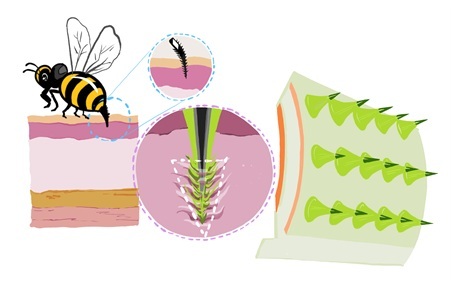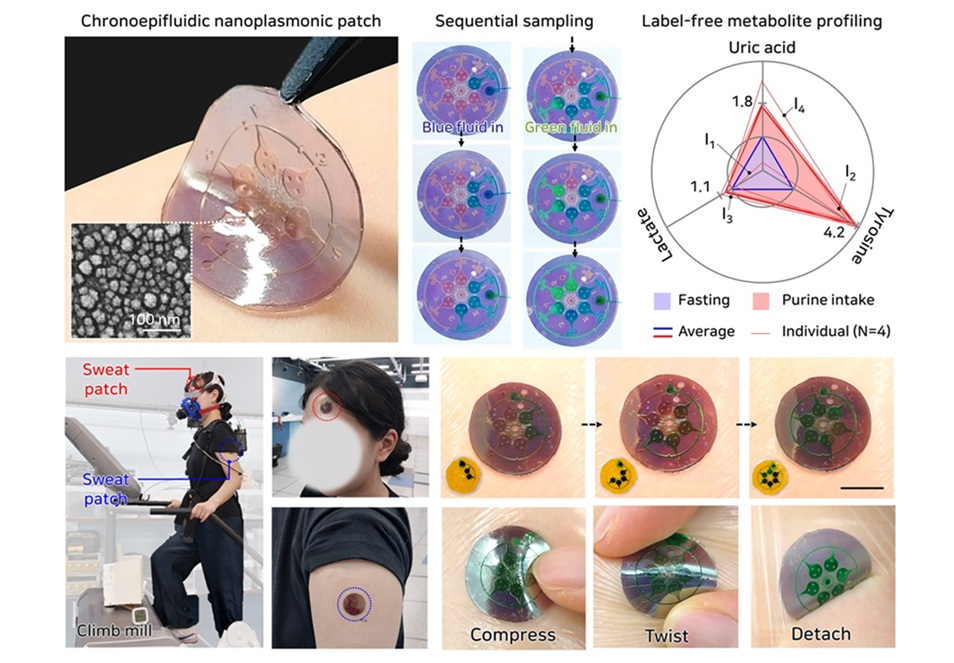Abdominal Flap Provides Improved Breast Reconstruction Results
|
By HospiMedica International staff writers Posted on 09 May 2016 |
A new study shows that using the abdominal deep inferior epigastric perforator (DIEP) flap for breast reconstruction following mastectomy provides long-term quality of life (QOL), similar to that of women without breast cancer.
Researchers at Georges Pompidou European Hospital (Paris, France) conducted a cross-sectional study of QOL in women who underwent DIEP flap breast reconstruction between 1995 and 2007, using the Medical Outcomes Study 36-Item Health Survey (Short Form-36), comparing the results to two reference samples, the first of which included 3,308 subjects from the French general population, while the second included 205 French cancer survivors who underwent mastectomy with (70 women ) or without (135 women ) breast reconstruction.
The results showed that women who underwent DIEP flap reconstruction showed QOL scores similar to those for women in the general population. When compared to women who underwent mastectomy, QOL scores were significantly better with DIEP flap reconstruction, with higher scores in all areas of QOL, compared to those with no breast reconstruction, and on five out of eight subscales compared to those with other types of reconstruction. The study was published in the May 2016 issue of Plastic and Reconstructive Surgery.
“These results indicate that DIEP flap breast reconstruction allows patients with breast cancer to maintain a good postoperative quality of life, comparable to that of the general population,” concluded lead author Vincent Hunsinger, MD, and colleagues. “Undergoing breast reconstruction may enhance women's ability to fight against the burden of breast cancer, particularly in younger age groups.”
DIEP flap breast reconstruction involves removal of the deep inferior epigastric perforators blood vessels--including the skin and fat connected to them--from the lower abdomen. The collective flap is then transplanted and connected to the patient's chest using microsurgery. The plastic surgeon then shapes the flap to create the new breast, without the sacrifice of any of the abdominal muscles. Many women who undergo this form of reconstruction enjoy the added benefit of a flatter abdomen. Due to the complexity of the surgery, few breast centers offer DIEP flap breast reconstruction.
Related Links:
Georges Pompidou European Hospital
Researchers at Georges Pompidou European Hospital (Paris, France) conducted a cross-sectional study of QOL in women who underwent DIEP flap breast reconstruction between 1995 and 2007, using the Medical Outcomes Study 36-Item Health Survey (Short Form-36), comparing the results to two reference samples, the first of which included 3,308 subjects from the French general population, while the second included 205 French cancer survivors who underwent mastectomy with (70 women ) or without (135 women ) breast reconstruction.
The results showed that women who underwent DIEP flap reconstruction showed QOL scores similar to those for women in the general population. When compared to women who underwent mastectomy, QOL scores were significantly better with DIEP flap reconstruction, with higher scores in all areas of QOL, compared to those with no breast reconstruction, and on five out of eight subscales compared to those with other types of reconstruction. The study was published in the May 2016 issue of Plastic and Reconstructive Surgery.
“These results indicate that DIEP flap breast reconstruction allows patients with breast cancer to maintain a good postoperative quality of life, comparable to that of the general population,” concluded lead author Vincent Hunsinger, MD, and colleagues. “Undergoing breast reconstruction may enhance women's ability to fight against the burden of breast cancer, particularly in younger age groups.”
DIEP flap breast reconstruction involves removal of the deep inferior epigastric perforators blood vessels--including the skin and fat connected to them--from the lower abdomen. The collective flap is then transplanted and connected to the patient's chest using microsurgery. The plastic surgeon then shapes the flap to create the new breast, without the sacrifice of any of the abdominal muscles. Many women who undergo this form of reconstruction enjoy the added benefit of a flatter abdomen. Due to the complexity of the surgery, few breast centers offer DIEP flap breast reconstruction.
Related Links:
Georges Pompidou European Hospital
Latest Surgical Techniques News
- World’s First Custom Anterior Cervical Spine Surgery Performed Using Personalized Implant
- Implantable Biodegradable Scaffold Helps Broken Bones Regrow Quickly
- First Human Spinal Cord Repair Using Patient Own Cells Could Cure Paralysis
- 'Dual-Mode' Tracer Enables Surgeons to See and Hear Prostate Cancer
- Pioneering One-Stage Hybrid Surgery Ensures Safer Outcomes in Brain and Spine Tumors
- Reimplanting Lab-Grown Patient Cartilage Accelerates Healing After Hip Surgery
- Diamond-Based Sensor Pinpoints Metastasized Cancer for Surgical Removal
- Minimally Invasive Valve Repair Improves Survival in Elderly AFMR Patients
- Tiny Soft Robots Dissolve Painful Kidney Stones with Targeted Drug Delivery
- Implantable 3D Patch Closes and Repairs Heart Defects
- New Endoscopy Technology Enables Early Detection of Esophageal Cancer
- New Implant Enables Women to Access Hip Resurfacing Surgery
- Surgical Micro-Robot Sees and Corrects Movements from Within
- AI Cuts Diagnostic Delays in Prostate Cancer
- 'Google Maps' for Surgeons to Help Perform Complex Robot-Assisted Esophagectomy
- New Technique for Measuring Brain Blood Flow During Surgery Can Prevent Strokes
Channels
Critical Care
view channel
Bee-Sting Inspired Wearable Microneedles to Revolutionize Drug Delivery
Neurological diseases affect millions of people worldwide, creating a pressing demand for long-term treatments that are both effective and patient-friendly. Conventional injections, while reliable, are... Read more
Wearable Smart Patch Runs Tests Using Sweat Instead of Blood
Blood sampling has long been the standard for monitoring internal health, but it is invasive, costly, and unsuitable for continuous tracking. Sweat, by contrast, is non-invasive and abundant, but conventional... Read morePatient Care
view channel
Revolutionary Automatic IV-Line Flushing Device to Enhance Infusion Care
More than 80% of in-hospital patients receive intravenous (IV) therapy. Every dose of IV medicine delivered in a small volume (<250 mL) infusion bag should be followed by subsequent flushing to ensure... Read more
VR Training Tool Combats Contamination of Portable Medical Equipment
Healthcare-associated infections (HAIs) impact one in every 31 patients, cause nearly 100,000 deaths each year, and cost USD 28.4 billion in direct medical expenses. Notably, up to 75% of these infections... Read more
Portable Biosensor Platform to Reduce Hospital-Acquired Infections
Approximately 4 million patients in the European Union acquire healthcare-associated infections (HAIs) or nosocomial infections each year, with around 37,000 deaths directly resulting from these infections,... Read moreFirst-Of-Its-Kind Portable Germicidal Light Technology Disinfects High-Touch Clinical Surfaces in Seconds
Reducing healthcare-acquired infections (HAIs) remains a pressing issue within global healthcare systems. In the United States alone, 1.7 million patients contract HAIs annually, leading to approximately... Read moreHealth IT
view channel
Printable Molecule-Selective Nanoparticles Enable Mass Production of Wearable Biosensors
The future of medicine is likely to focus on the personalization of healthcare—understanding exactly what an individual requires and delivering the appropriate combination of nutrients, metabolites, and... Read more
Smartwatches Could Detect Congestive Heart Failure
Diagnosing congestive heart failure (CHF) typically requires expensive and time-consuming imaging techniques like echocardiography, also known as cardiac ultrasound. Previously, detecting CHF by analyzing... Read moreBusiness
view channel
CMEF 2025 to Promote Holistic and High-Quality Development of Medical and Health Industry
The 92nd China International Medical Equipment Fair (CMEF 2025) Autumn Exhibition is scheduled to be held from September 26 to 29 at the China Import and Export Fair Complex (Canton Fair Complex) in Guangzhou.... Read more
Bayer and Broad Institute Extend Research Collaboration to Develop New Cardiovascular Therapies
A research collaboration will focus on the joint discovery of novel therapeutic approaches based on findings in human genomics research related to cardiovascular diseases. Bayer (Berlin, Germany) and... Read more















